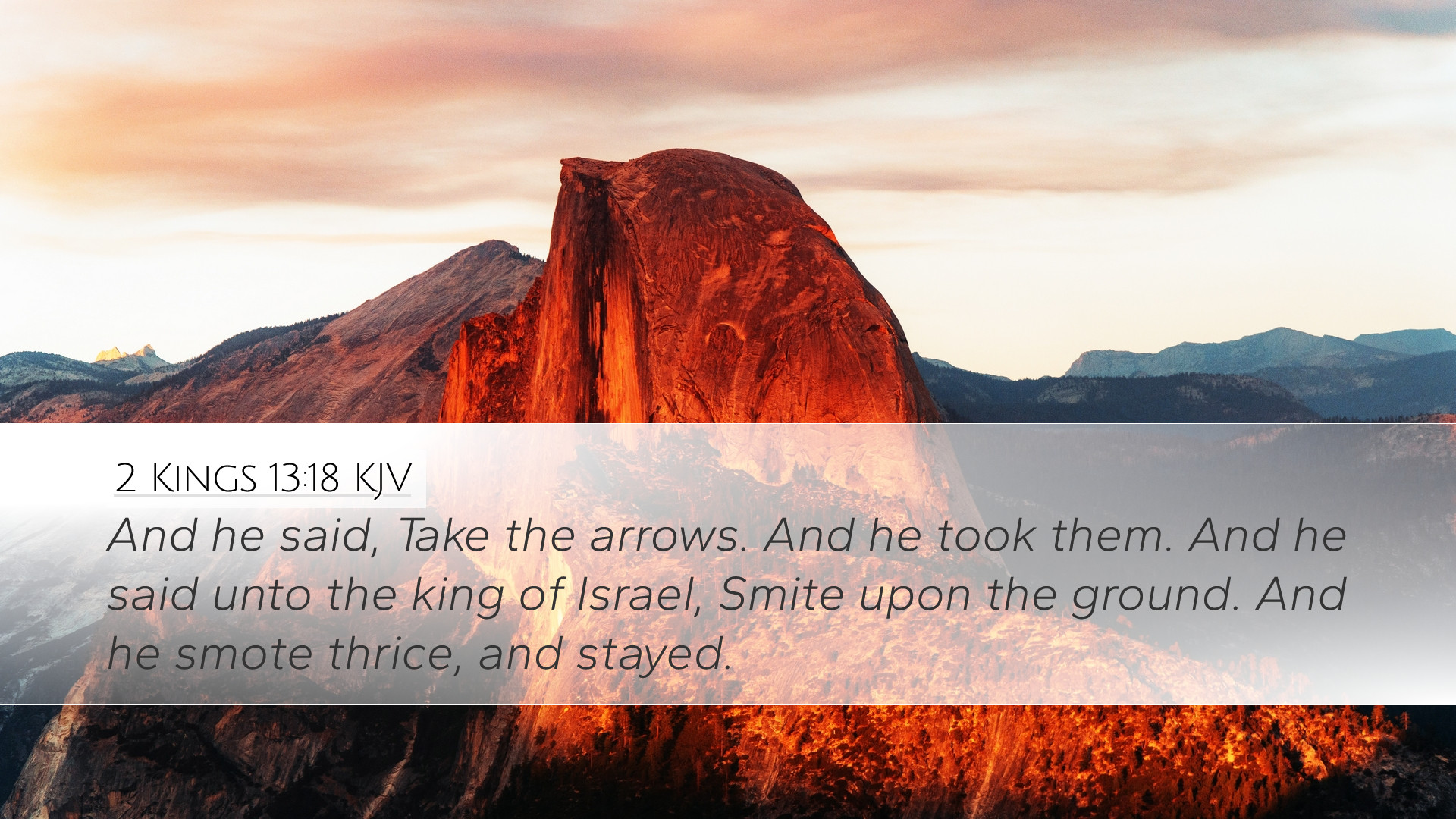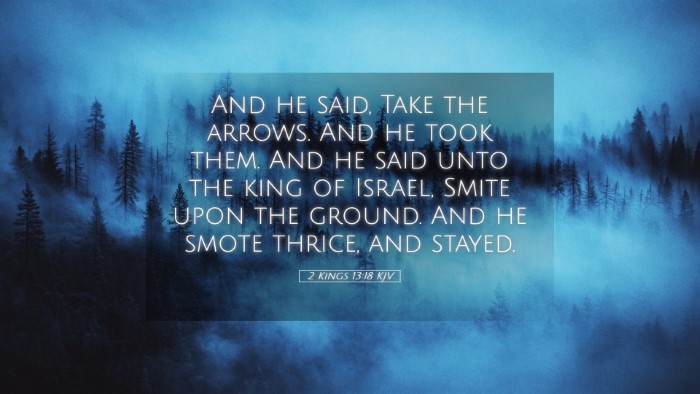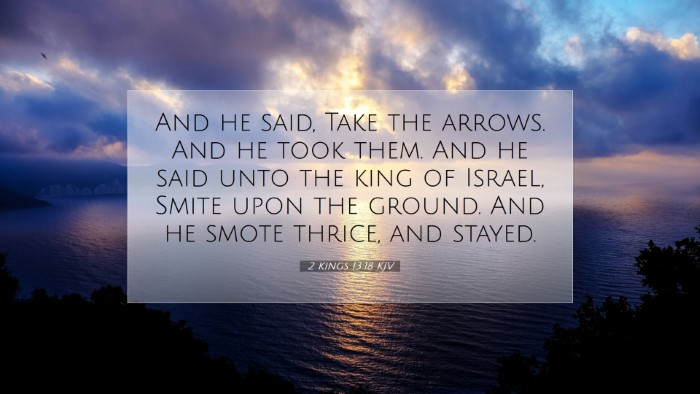Commentary on 2 Kings 13:18
2 Kings 13:18 (KJV): "And he said, Take the arrows. And he took them. And he said unto the king of Israel, Smite upon the ground. And he smote thrice, and stayed."
Introduction
The verse in question, 2 Kings 13:18, is part of a significant prophetic act performed by the prophet Elisha, who was nearing his death. This act demonstrates the connection between spiritual authority and physical actions, serving as a conduit for God’s power through the prophet. The following commentary integrates insights from various public domain sources, including Matthew Henry, Albert Barnes, and Adam Clarke to provide a comprehensive understanding of this passage.
Contextual Analysis
In 2 Kings 13, we observe the decline of Israel’s spiritual state and the impending judgment that follows. Elisha's actions are indicative of the remnants of prophetic authority amidst a corrupt society. The historical backdrop includes the recurrent invasions by the Syrians, and Israel's often-idolatrous kings. Elisha commands the king to perform an action that symbolizes God's judgment and Israel's ability to resist her enemies.
Detailed Commentary
1. The Command to Take the Arrows
As Matthew Henry elaborates, the arrows symbolize military strength and divine assistance. The act of taking the arrows signifies the king's readiness and willingness to receive God's guidance in battle. Elisha’s instruction not only establishes the ritualistic nature of divine instruction but reinforces the necessity of human cooperation in the unfolding of God’s plans.
2. Striking the Ground
Elisha’s command to "smite upon the ground" further emphasizes the concept of action—reflecting one's faith and expectation of God’s intervening power. According to Albert Barnes, the act of striking was to be done with the full intention of seeking victory, embodying fervor and commitment to the cause. The thrice-striking can be seen as insufficient faith in God’s promise; thus, it showcases a lack of perception regarding the seriousness of the conflict Israel was facing.
3. The Number of Strikes
Adam Clarke suggests that the number of times the king struck the ground carries weight in prophetic significance. Striking the ground three times may symbolize a limited vision of Israel's future victories against their enemies. This brings forth the principle that our responses to God’s commands can either reflect faith and anticipation or reveal limitations in understanding God’s intent for our lives and struggles.
Theological Implications
This passage has rich theological implications concerning human agency in God’s sovereign plan. God often uses prophetic symbols and actions to reveal His purposes and encourage active participation from His people. The follower of God must respond to divine commands with vigor and understanding, acknowledging the tension between divine sovereignty and human responsibility.
Lessons for Contemporary Believers
- Respond with Faith: Just as Jehoash was instructed to take action, believers today are reminded to respond to God’s commands with faith. Our actions symbolize our expectations of God’s deliverance and victory in our lives.
- Understand the Weight of Our Actions: The king’s limited response teaches that our responses to divine instruction can have far-reaching implications, affecting our spiritual lives and those around us.
- Be Vigilant and Diligent: Believers are called to be diligent in their spiritual walk and in their obedience to God’s Word, not to underestimate the impact of small acts of faith.
Conclusion
In conclusion, 2 Kings 13:18 serves as a poignant reminder of the interplay between divine directive and human action. The lessons gleaned from this passage encourage believers to approach God’s commands with earnestness, recognizing the significance of our actions in the spiritual realm. Through the lenses of Henry, Barnes, and Clarke, this verse underscores the necessity of fervent faith and the expectation of God’s power in all circumstances.


